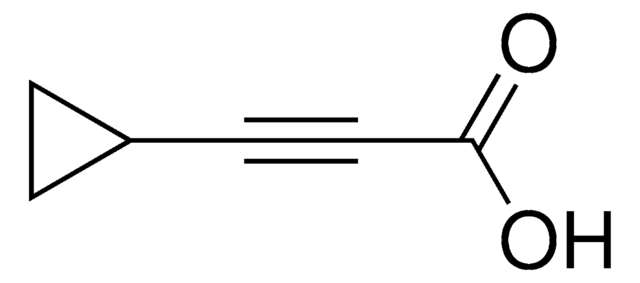About This Item
Recommended Products
assay
97%
refractive index
n20/D 1.446
density
0.847 g/mL at 25 °C
storage temp.
2-8°C
SMILES string
CC(O)C#C[Si](C)(C)C
InChI
1S/C7H14OSi/c1-7(8)5-6-9(2,3)4/h7-8H,1-4H3
InChI key
HJJSDJHRTMFJLP-UHFFFAOYSA-N
signalword
Warning
hcodes
Hazard Classifications
Eye Irrit. 2 - Skin Irrit. 2 - STOT SE 3
target_organs
Respiratory system
Storage Class
10 - Combustible liquids
wgk_germany
WGK 3
flash_point_f
143.0 °F - closed cup
flash_point_c
61.67 °C - closed cup
ppe
Eyeshields, Gloves, type ABEK (EN14387) respirator filter
Certificates of Analysis (COA)
Search for Certificates of Analysis (COA) by entering the products Lot/Batch Number. Lot and Batch Numbers can be found on a product’s label following the words ‘Lot’ or ‘Batch’.
Already Own This Product?
Find documentation for the products that you have recently purchased in the Document Library.
Our team of scientists has experience in all areas of research including Life Science, Material Science, Chemical Synthesis, Chromatography, Analytical and many others.
Contact Technical Service









